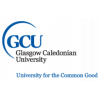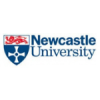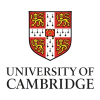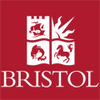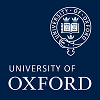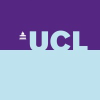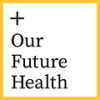Snabbfakta
-
- Glasgow
Ansök senast: 2024-12-28
Research Assistant
Advert
Glasgow Caledonian – the largest and leading modern university in Scotland - is a vibrant, values-led university with campuses in the heart of Glasgow and London. With a strong commitment to high quality education and research which supports the communities we serve, we have strong partnerships with employers to ensure our students get the careers they dream of and deserve.
In we rocketed into the top 40 universities in the UK in the highly regarded Guardian University Guide, were ranked the UK’s 2nd top performing modern university in the inaugural Daily Mail guide, and entered the top highly coveted 50 UK universities in the Times and Sunday Times Good University Guide for the first time. We are the top performing modern University in Scotland in all three guides. We are the only Scottish university with EcoCampus Platinum accreditation and were ranked second in Scotland for sustainability in the most recent People and Planet league table.
With a wide range of professionally accredited courses and links with over industry partners, we have the highest proportion of undergraduate level graduates in highly skilled occupations (83%) compared to other Scottish modern universities - with 91% of our students in employment or further study within fifteen months of graduating (HESA ). We are Scotland’s leading provider of Graduate Apprenticeships and we have transnational partnerships around the world, supporting more than 22, students from nearly countries. We are committed to widening participation, helping more people from diverse backgrounds into university.
Guided by our values – integrity, responsibility, creativity and confidence - we transform the lives of the people and communities we serve.
The Water Research Group (WRG) at GCU has expertise in a wide range of water-related challenges, developed over decades of research through national and international projects. We have led ground-breaking work on pharmaceutical pollution, wastewater management and the circular water economy, community engagement in the area of water management, flood resilience, and other topics, collaborating with the Scottish Government, the water industry, the NHS, and research institutions in Scotland, the UK and abroad. The WRG is interdisciplinary in nature and comprises researchers from all three of GCU’s academic Schools, enabling us to take a systems-based approach to ‘wicked’ water problems, exploring both societal and technical solutions. This involves sophisticated chemical analysis, environmental science, microbiological approaches, ecotoxicology, and chemical engineering; but also in-depth exploration of community perspectives, policy analysis, and stakeholder engagement.
We are at the start of a new collaboration with the University of the Philippines’ National Institutes of Health in Manila and the University of the Philippines Diliman in Quezon City, entitled PASIG Healthcare: Pharmaceutical Pollution Assessment to foster Systems Innovation and Governance in Healthcare. The nascent Universal Healthcare Act of the Philippine government will widen access to diagnosis, may increase appropriate prescription, and may decrease inappropriate use of antimicrobials. Net consequences for pharmaceutical pollution and AMR risk are therefore unpredictable and baseline data are lacking. Our project, funded by the British Council’s International Science Partnerships Fund (ISPF) aims to investigate the complex social and behavioural factors that contribute to antimicrobials pollution along Pasig River in Metro Manila and co-design local systems-based solutions that will help mitigate this health and environmental issue. Using a transdisciplinary approach, we will conduct stakeholder mapping; conduct social and behavioural key informant interviews on antimicrobial use and disposal; conduct the first-ever targeted monitoring campaign to identify hotspots of antimicrobial pollution and AMR-related risks; and conduct participatory scenario-planning with key stakeholders to co-design an innovation roadmap for health and social wellbeing, a sustainable pharmaceutical industry, increased productivity, and strengthening of the blue economy through rehabilitated ecosystems.
The current position is for a Research Assistant on the project PASIG Healthcare, described above. The successful candidate will be expected to:
The successful candidate will be expected to work closely with a Research Assistant at the University of the Philippines National Institutes of Health.
The role holder will have completed or almost completed a PhD in a relevant field. The ability to work independently with minimal supervision and to a high standard is essential as well as having research experience in health systems, public health, health policy, health economics, environmental economics, or related field. You will have excellent organisational and communication skills (both written) with experience in organising, conducting and analysing semi-structured interviews along with organising workshops and/or co-creation of outputs with stakeholders. The successful candidate will have experience in producing policy briefs, road maps, logic models, or similar documents at the science-policy interface therefore experience in report writing together with strong organisation skills are vital. An interest in interdisciplinary or systems approaches to health and environmental quality and an understanding of global health and health systems and priorities in low and middle-income countries (LMIC) will support within this role.
It is desirable for applicants to have an understanding of relevant topics including access to medicines, pharmaceutical pollution, antimicrobial resistance, water and wastewater infrastructure, and blue economies. Specific knowledge of the Philippines, its health systems, and its water infrastructure along with prior experience of scenario planning and success in academic publication would also be desirable.
Prospective candidates can request an informal conversation with the Project Lead:
Dr. Karin Helwig, Senior Lecturer in Water and Environmental Management, Department of Civil Engineering and Environmental Management, School of Computing, Engineering and the Built Environment by emailing.
As the University for the Common Good, we are committed to embedding equality, diversity and inclusion, as well as our values in everything that we do. As such, we welcome applications from all suitably qualified candidates who demonstrate the .
The University offers a range of benefits including opportunities for professional development, family friendly policies, cycle to work scheme and onsite childcare facilities.
Please note that the appointment will be made on the first point of the salary scale (unless by exception).
The School of Computing, Engineering and Built Environment is committed to promoting equality, diversity and inclusion, and is one of only two such Schools in Scotland to hold the prestigious Athena SWAN Silver Award for promoting gender equality and women’s careers in STEMM subjects (science, technology, engineering, mathematics and medicine) and allied STEMM subjects (surveying, environment and management of all themes) in higher education.
